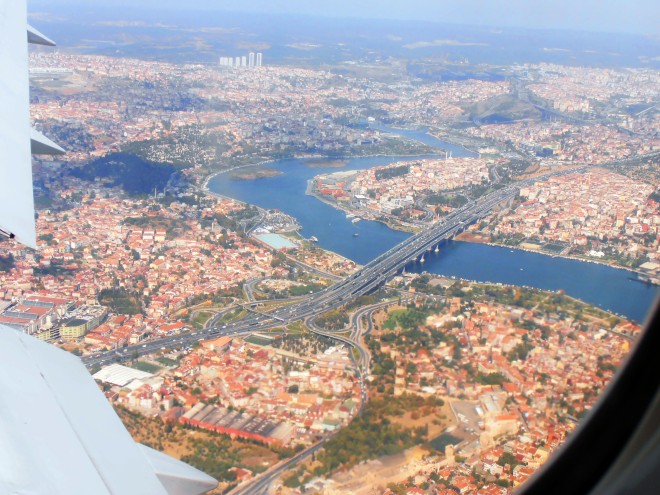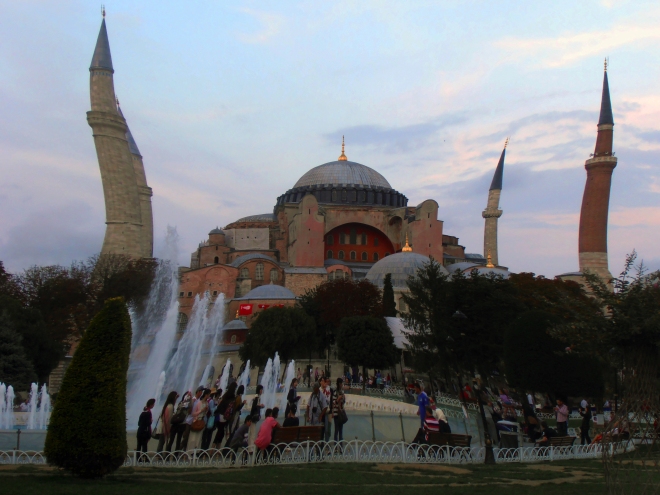It’s no secret that stress and anxiety affect how you perceive your environment — particularly when you’re somewhere unfamiliar. Your surroundings can look blurry, distorted, dull, glassy, and just plain intimidating when you’re nervous and overwhelmed. The question is, just how different do things look when you’re under stress?
While in Istanbul a couple weeks ago, I stayed down the hall from a woman who didn’t leave her hotel room for two days because her journey was “just too much” and “not what she was expecting.” She looked like she wanted to fall asleep in her bathtub with a good book and a glass of wine, and forget all the “adventures” just outside her door. What did she — and other nervous travelers out there — see that others didn’t? Here’s an exploration — and a reminder that our mind creates our own reality.
1. People with a fear of flying can feel lightheaded and suffer blackouts, particularly during landing and take-off. The world below can look dark and out of focus. The reality? Your plane window isn’t that dirty — and although it’s a lot to take in, that wonderful first view will be one of your longest-lasting memories.
2. Surrounded by strangers and unfamiliar skylines, we may not get the full detail in front of us even if our vision is 20/20. Why? Our minds tend to “blur things out” to protect us from sensory overload.
3. We tend to view people and our surroundings in more simplistic terms when we don’t understand the culture of the place we’re visiting. Even though we know it’s not accurate, we can see only the outlines and colors of the unfamiliar instead of “the full picture.”
4. Buildings we’ve never seen before can be intimidating and look distorted to us, while strangers may seem larger than life.
5. We can struggle to bring even the most relaxing scenes into focus, and see only a clutter of dark objects in our ship’s path.
6. We may be oblivious to detail even in less distracting environments — and may barely notice the sun shining down on us.
7. Exotic locales can have a two-dimensional, mottled quality to them, like something we saw in a book long ago — and not quite real in front of us.
8. We can revert to tunnel vision, especially when we see something that looks too precarious to be true.
9. When we’re a bit turned around getting back to the hotel, we can literally feel pushed back or pulled forward by our surroundings — and we don’t even notice our reliable landmark in the distance.
10. If just being at the airport stresses you out, you may see a tube of dread waiting out on the tarmac instead of the full picture.
11. Know you have a stunning view outside your window? Look too hard, and you’ll see yourself staring back; relax, and you’ll be floating above the clouds.























